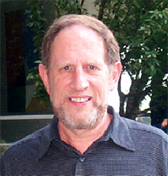
University Chairman, Department of Cell Biology
Professor, Department of Cell Biology
Judith and Burton P. Resnick Professor
Chanin Bldg., Room 402
718.430.2169
arthur.skoultchi@einsteinmed.org
Research Interest
Selected Publications
Lab Members
|
|
Key Words: Chromatin, epigenetics, transcription, proliferation, differentiation, leukemia
Our laboratory is interested in understanding the mechanisms controlling mammalian development and cell differentiation. We study the epigenetic functions of chromatin proteins and transcription factors in control of gene expression in embryonic stem cells, in red blood cells, and in Drosophila. Our approaches involve directed gene inactivation and transgenesis in mice and Drosophila. We also study control of proliferation and differentiation in red blood cell progenitors and in leukemia cells in which normal development is disrupted. Currently there are two major projects underway in the lab.
Role of H1 Linker Histones and Chromatin Remodeling Factors in Chromatin Structure, DNA Methylation, the Histone Code, Gene Expression and Development in Mice and Drosophila. Recent studies show that posttranslational modifications of core histones (H2A, H2B, H3, H4) (the Histone Code) play a very important role in control of gene expression. The H1 linker histones are more diverse than the core histones. Mice contain 8 H1 histone subtypes including differentiation-specific and tissue-specific subtypes, whereas Drosophila has only one type of H1. H1’s are thought to be responsible for the final level of packaging DNA into the compact chromatin structure but we know very little about their role in gene expression and development. We are studying the functional roles of H1 linker histones by inactivating (knocking-out) specific H1 genes in mice and the single H1 in Drosophila. We are also reintroducing mutant H1 linker histones into H1 depleted mouse cells and flies, to perform structure-function studies. We have also established a new role for H1 histone in DNA methylation, genomic imprinting and establishment of the histone code. We are also studying the chromatin remodeling factor that assembles H1 histone into chromatin.
Control of Proliferation and Differentiation in Normal and Leukemic Blood Cells: In this project we are investigating how cell proliferation and differentiation are coordinated in normal blood cell development and how this coordination is disrupted in leukemia. We have investigating the molecular mechanisms for the cross talk between these two cellular programs in normal and leukemic blood cells. Our studies are focused on the relationships between the master transcription factors that control blood cell development and the cell cycle regulators (cyclins, cyclin-dependent kinases (cdks), cdk inhibitors and RB) that regulate the cell division cycle proliferation. This project includes genome-wide approaches involving chromatin immunoprecipitation and high throughput sequencing (ChIP-Seq) and gene expression profiling by RNA-Seq.
|